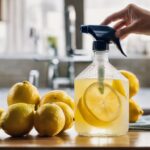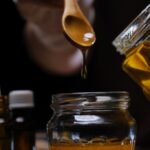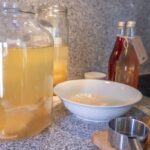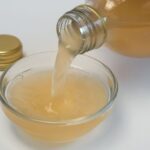Are you tired of using harsh chemicals for kitchen cleaning solutions? Studies show that common household cleaners can be harmful to our health and the environment. This blog post will guide you through creating your own DIY chemical-free cleaning solutions , providing a safer and eco-friendly alternative.
Let’s dive into a cleaner, greener kitchen!
Key Takeaways
- DIY natural cleaners are a safer and eco – friendly alternative to harsh chemical cleaners commonly used in the kitchen.
- Using non – toxic kitchen cleaners has health benefits, like avoiding headaches or coughs from strong chemical smells, and preventing skin burns or rashes.
- DIY natural cleaners also have environmental benefits, such as reducing single-use plastic waste and minimizing air and water pollution.
- Homemade recipes for all – purpose cleaner, glass cleaner, dish soap, wood cleaner, and stain remover provide effective alternatives to commercial products.
Importance of Using Non-Toxic Kitchen Cleaning Solutions

Using non-toxic kitchen cleaners is essential for the well-being of both your health and the environment.
Health benefits

Using non-toxic kitchen cleaners is good for your health. They have no harsh chemicals that can make you sick. Some people get headaches or coughs from strong chemical smells. This will not happen with natural cleaners.
You also don’t need to worry about skin burns or rashes from touching harsh chemicals. Natural cleaners keep your home clean and safe!
Environmental benefits

Using DIY natural cleaners in your kitchen comes with several environmental benefits. By making your own cleaning solutions, you can reduce the amount of single-use plastic waste produced from buying commercial cleaning products.
Additionally, many homemade cleaners rely on eco-friendly ingredients such as vinegar and baking soda, which are non-toxic and biodegradable. This means that when these natural cleaners are washed down the drain or used to clean surfaces, they do not harm aquatic life or contribute to water pollution.
Furthermore, by opting for chemical-free kitchen cleaning solutions, you can minimize air pollution caused by harmful fumes released from conventional cleaning agents. Choosing environmentally friendly alternatives helps create a healthier home environment while also reducing our impact on the planet.
DIY Natural Kitchen Cleaner Recipes
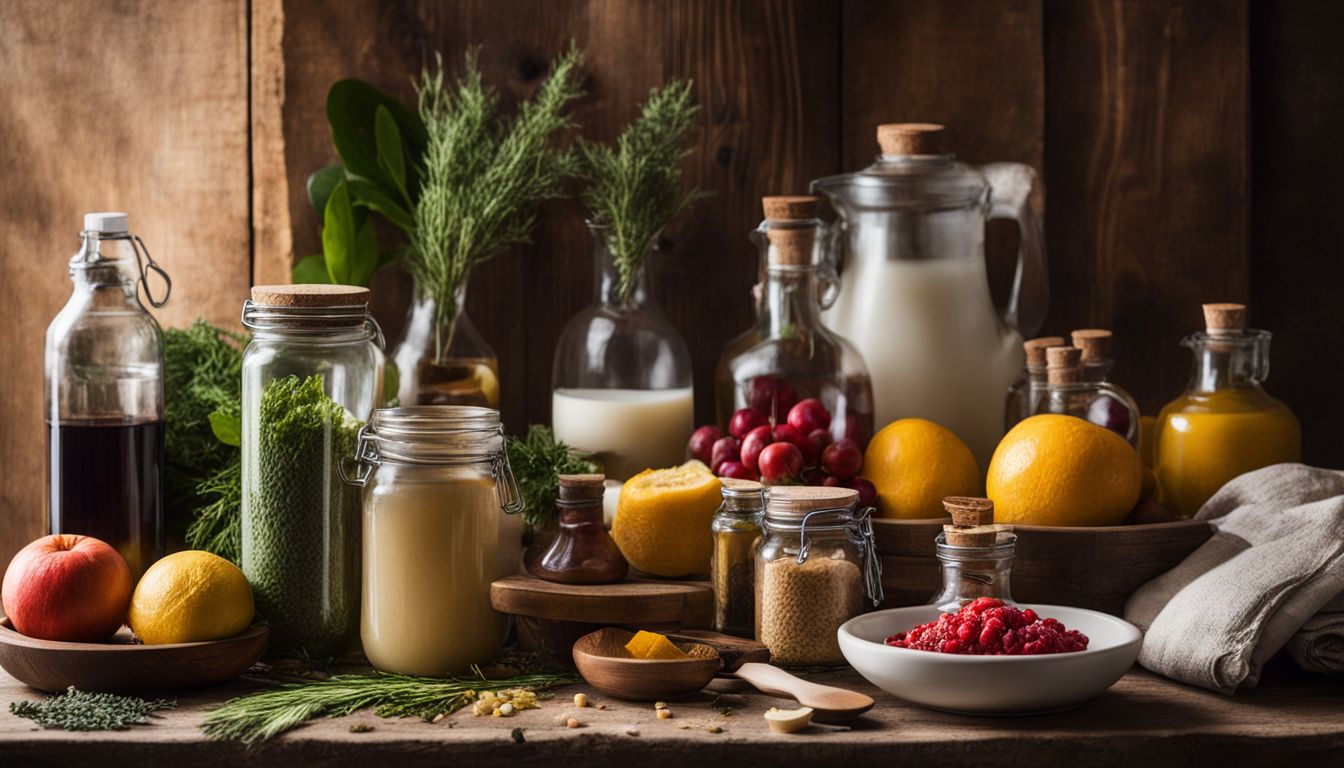
In this section, we will provide you with easy-to-follow recipes for making natural kitchen cleaners that are safe and chemical-free.
All-purpose cleaner
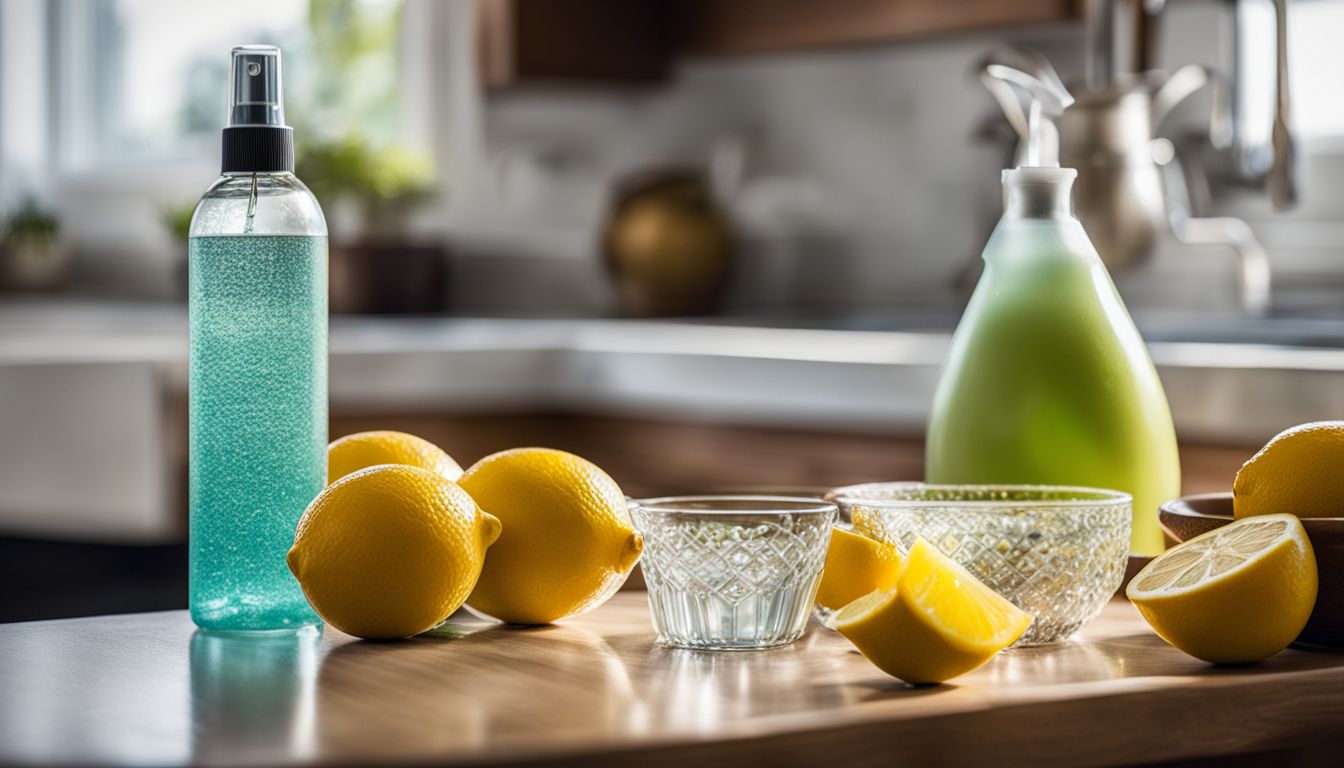
You can make your own all-purpose cleaner for a chemical-free kitchen. It’s easy and cost-effective. One recipe uses white vinegar, water, lemon rind, and rosemary sprigs. Vinegar is a versatile ingredient that can help eliminate grease and grime.
It’s an eco-friendly alternative to harsh chemicals found in commercial cleaners. Making your own all-purpose cleaner allows you to avoid harmful substances and save money at the same time.
Give it a try and see how effective it is in keeping your kitchen clean and safe.
Glass cleaner

Glass cleaner is an essential homemade cleaning solution for a chemical-free kitchen. It’s simple to make and effective at removing streaks and smudges from glass surfaces. One recipe for a natural glass cleaner involves mixing equal parts distilled white vinegar and filtered water in a spray bottle.
This mixture can be sprayed onto the glass surface and wiped clean with a microfiber cloth or paper towel. Vinegar is known for its ability to cut through grease and grime, making it perfect for cleaning windows, mirrors, and other glass surfaces in the kitchen.
Using this DIY glass cleaner not only helps to avoid harmful chemicals found in commercial cleaners but also saves money by using common household ingredients.
Dish soap
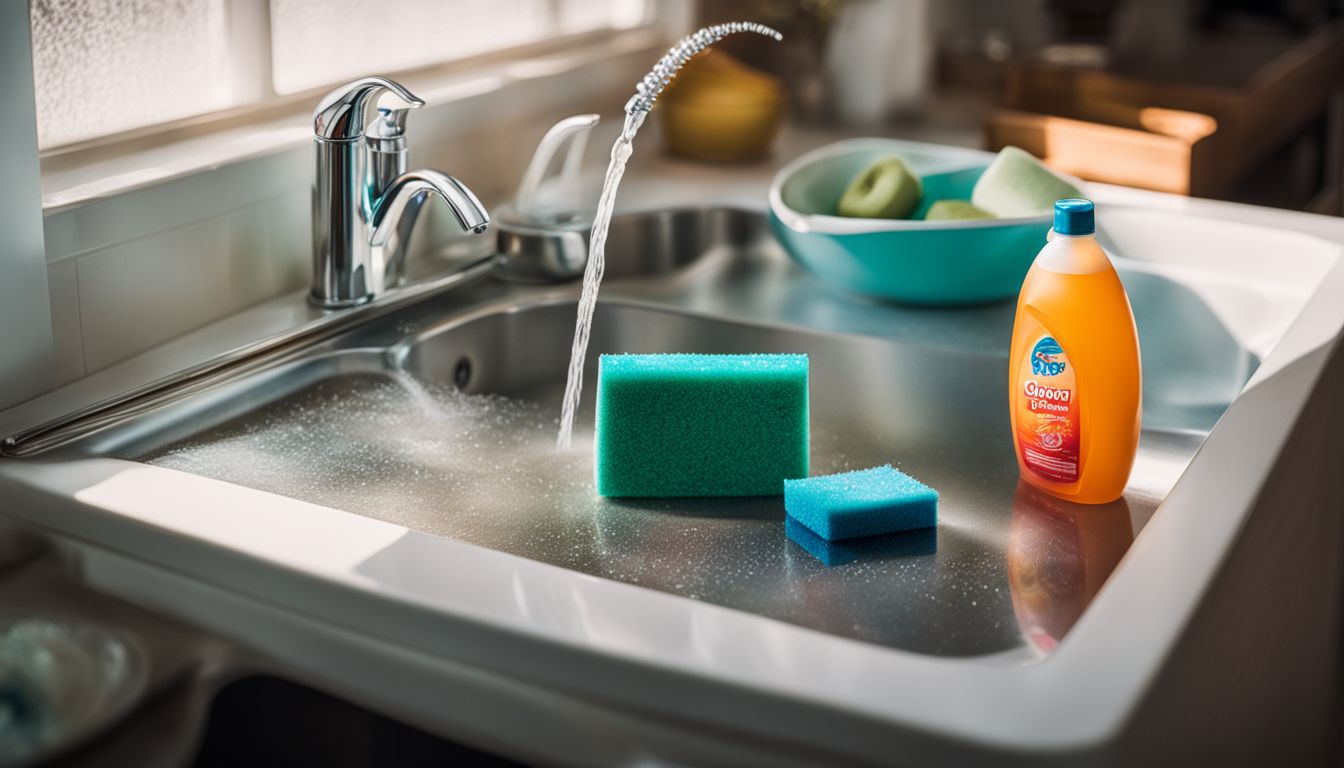
To make a natural dish soap for your chemical-free kitchen, you can mix distilled white vinegar, filtered water, and a few drops of an essential oil. This homemade dish soap is non-toxic and safe to use on your dishes.
Vinegar is a great cleaning agent that can remove grease and food residue from plates, utensils, and cookware. By making your own dish soap, you can avoid harmful chemicals often found in commercial products.
It’s an eco-friendly and cost-effective solution for keeping your dishes clean and free of toxins.
Wood cleaner
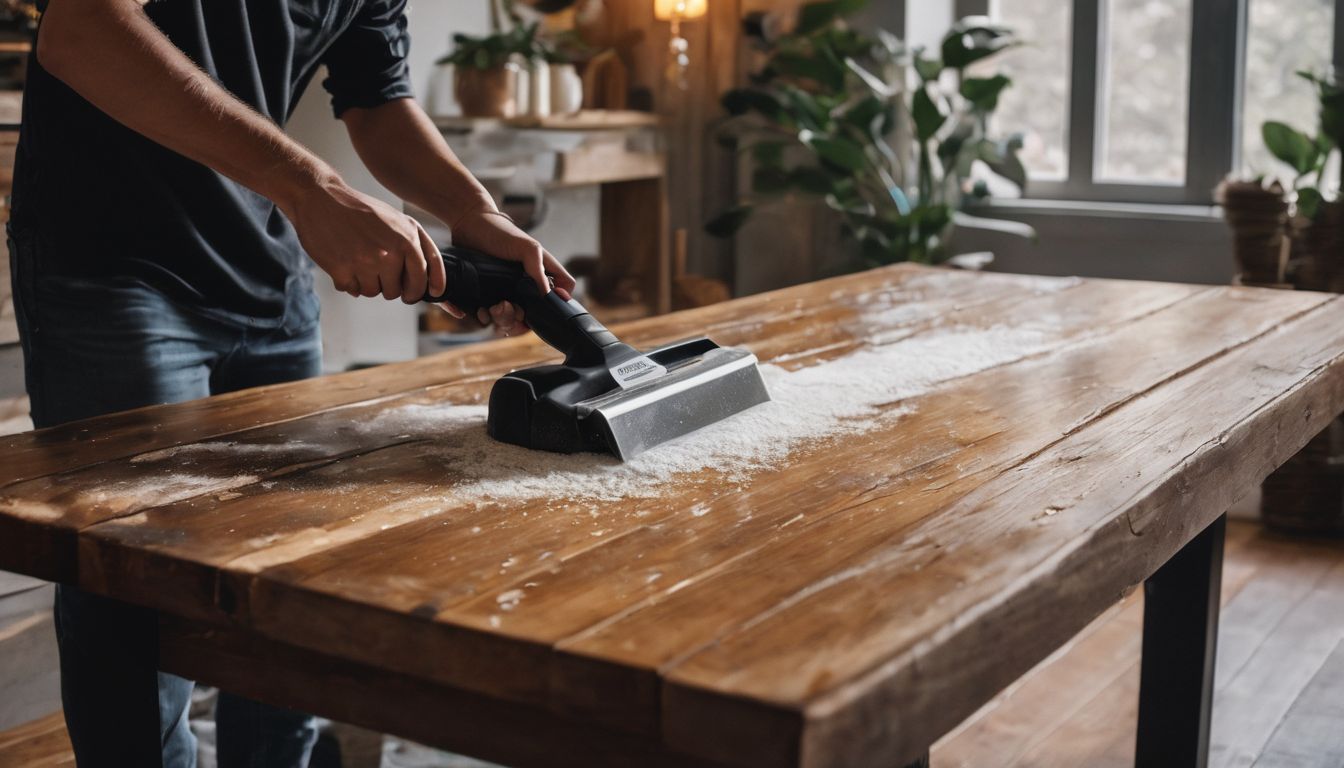
To clean your wooden surfaces without using harmful chemicals, you can make your own natural wood cleaner at home. One recipe for a wood cleaner involves mixing equal parts distilled white vinegar and water in a spray bottle.
You can then add a few drops of lemon essential oil to enhance the fragrance if desired. This homemade wood cleaner is effective in removing dirt, grime, and fingerprints from wooden furniture, cabinets, and floors.
Vinegar helps to break down grease and dirt while the lemon essential oil adds a fresh scent. Using this DIY wood cleaner not only keeps your kitchen chemical-free but also helps to preserve the natural beauty of your wooden surfaces.
Stain remover
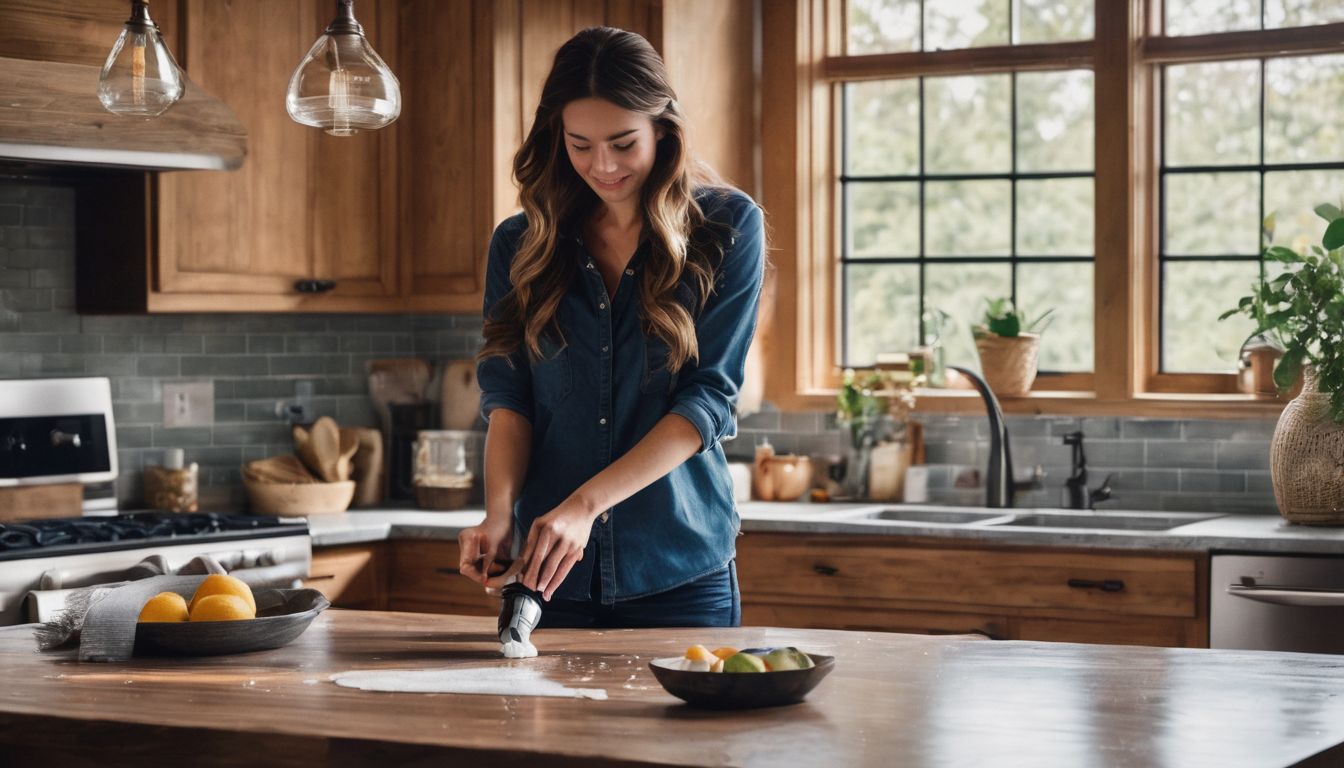
One of the DIY natural cleaners for a chemical-free kitchen is a homemade stain remover. This stain remover can help you get rid of tough stains on your kitchen countertops, cutting boards, and other surfaces.
To make this effective stain remover, you will need simple ingredients like baking soda, hydrogen peroxide, liquid dish soap, and warm water. Mix these ingredients together to form a paste-like consistency and apply it to the stained area.
Let it sit for a few minutes before scrubbing gently with a sponge or cloth. Rinse thoroughly with warm water afterwards. This homemade stain remover is safe to use and can effectively remove stubborn stains without any harmful chemicals.
Tips for Effective Use of DIY Natural Cleaners
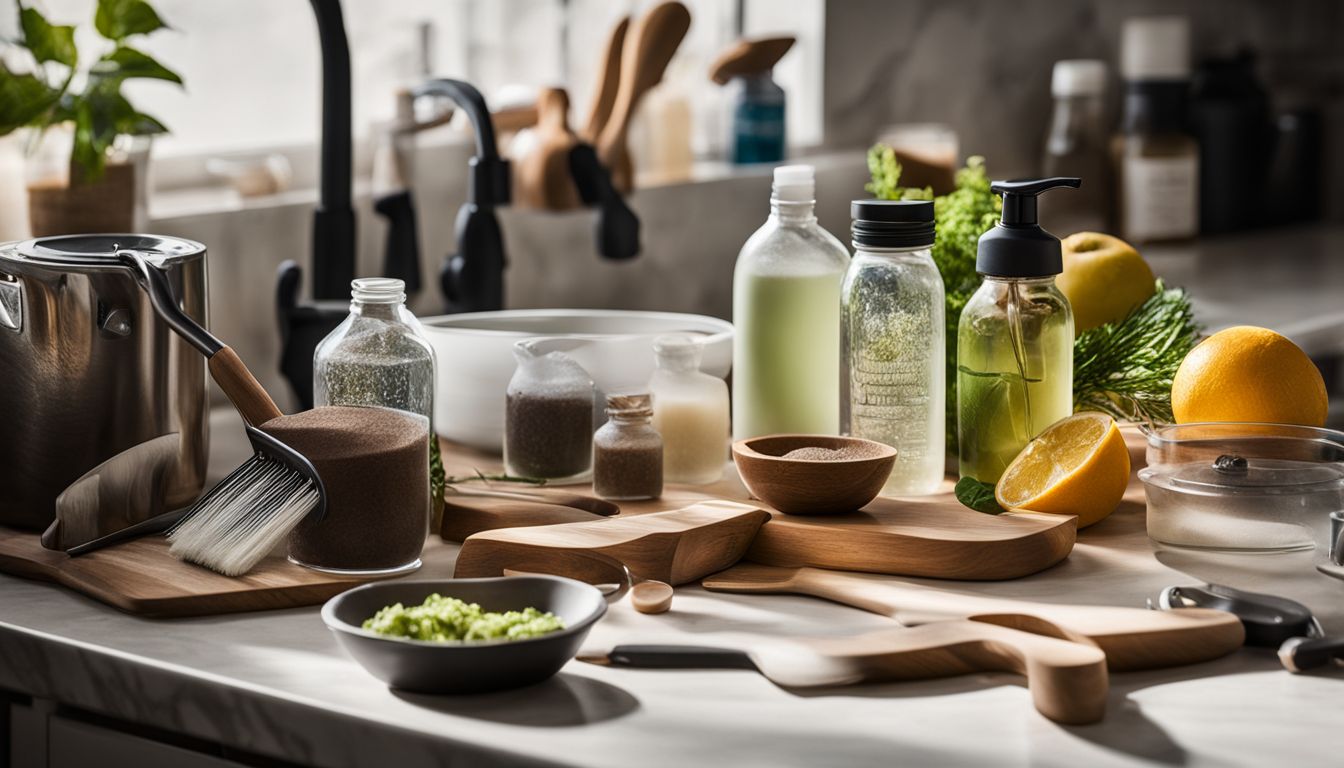
Mix and dilute the DIY natural cleaners properly for maximum effectiveness on different surfaces.
Proper mixing and dilution
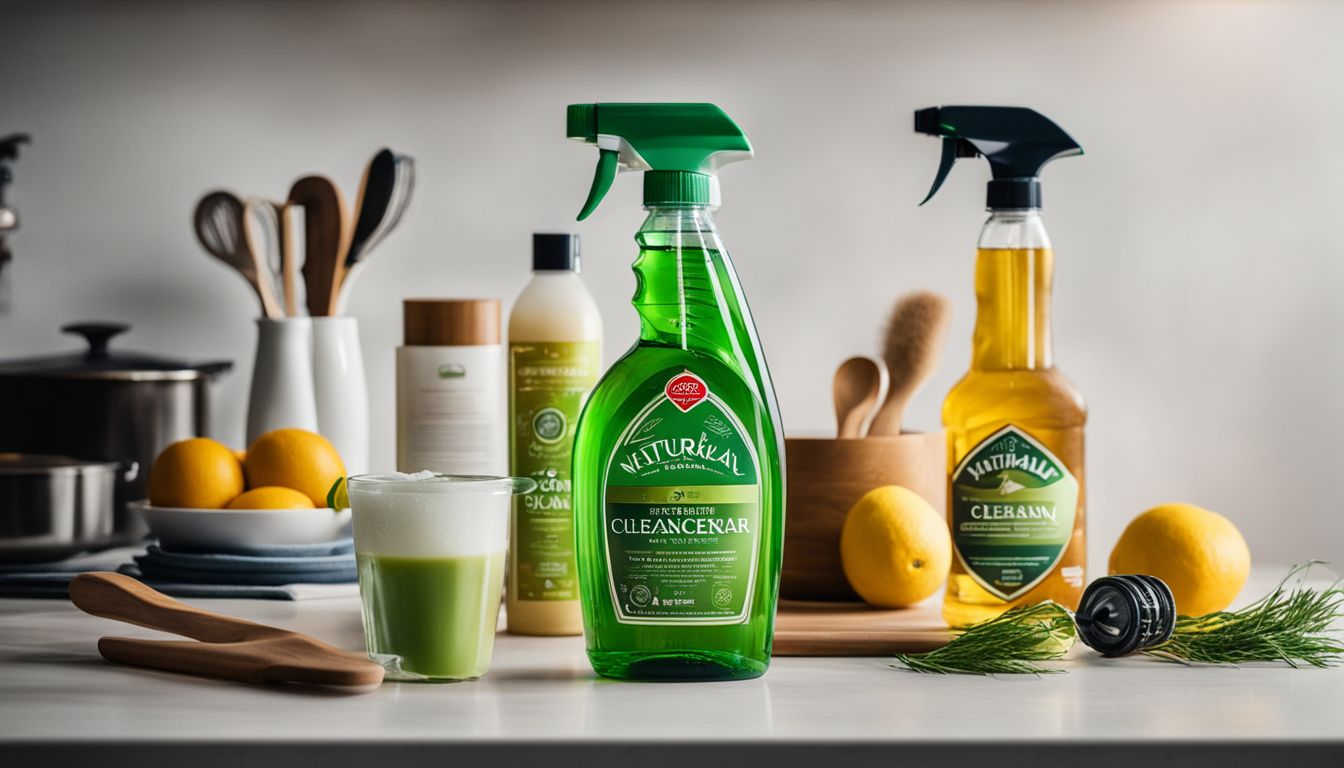
Mixing and diluting your DIY natural kitchen cleaners correctly is important to ensure their effectiveness and safety. Here are some tips:
- Measure the ingredients accurately to maintain the right balance in your cleaning solution.
- Follow the recipe instructions carefully to know the correct ratios of each ingredient.
- Use clean containers or spray bottles to mix and store your cleaners.
- Shake or stir the solution well to ensure that all ingredients are thoroughly combined.
- When diluting, use water as directed in the recipe to avoid making the solution too weak or too strong.
- Test a small inconspicuous area before using the cleaner on delicate surfaces, such as wood or marble, to ensure it doesn’t cause any damage.
- If you need a stronger cleaning solution, don’t increase the concentration of the ingredients; instead, let it sit on the surface for a longer time before wiping or scrubbing.
- Avoid mixing different cleaning solutions unless a recipe specifically states it’s safe to do so.
Surface compatibility
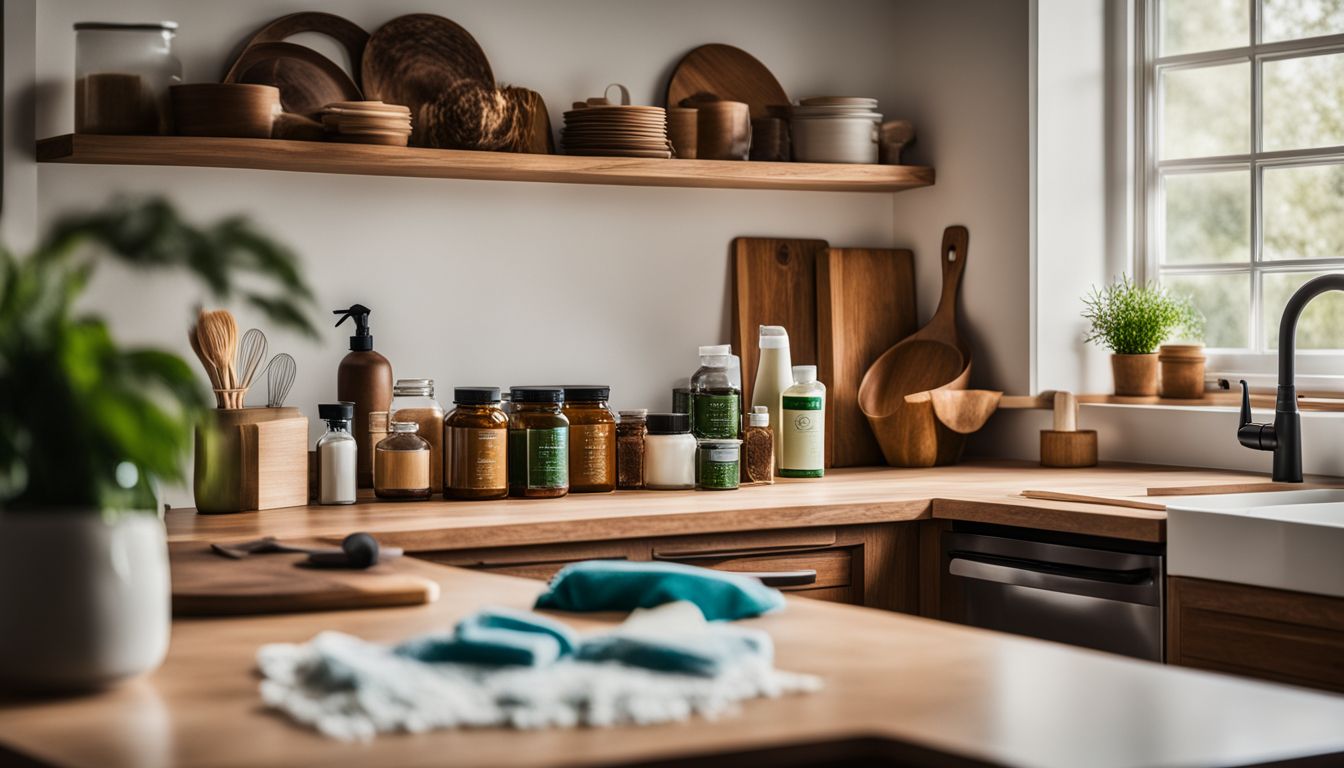
Before using any DIY natural cleaner, it’s important to consider surface compatibility. Not all surfaces can handle the same cleaning agents, so it’s essential to choose the right cleaner for each surface in your kitchen.
For example, vinegar-based cleaners are great for glass and stainless steel but should not be used on marble or granite countertops as they can cause etching and dulling. Baking soda is gentle and works well on various surfaces, including sinks, tiles, and stovetops.
Wood surfaces require special care, so opt for a homemade wood cleaner made with a mixture of olive oil and lemon juice or vinegar. Always test a small area before applying any cleaner to ensure that it won’t damage or stain the surface you’re cleaning.
Storage and shelf life

Store your homemade natural kitchen cleaners in airtight containers to keep them fresh and effective. Most of these cleaners have a shelf life of about one to three months, so make sure to label them with the date you made them.
Keep them in a cool, dark place away from direct sunlight or extreme temperature changes. It’s important to note that some homemade cleaners may separate over time, but this is normal.
Just give them a gentle shake before use to mix everything back together. By properly storing your DIY natural cleaners, you can ensure they last longer and continue to provide an eco-friendly cleaning solution for your chemical-free kitchen.
Alternative Non-Toxic Kitchen Cleaners
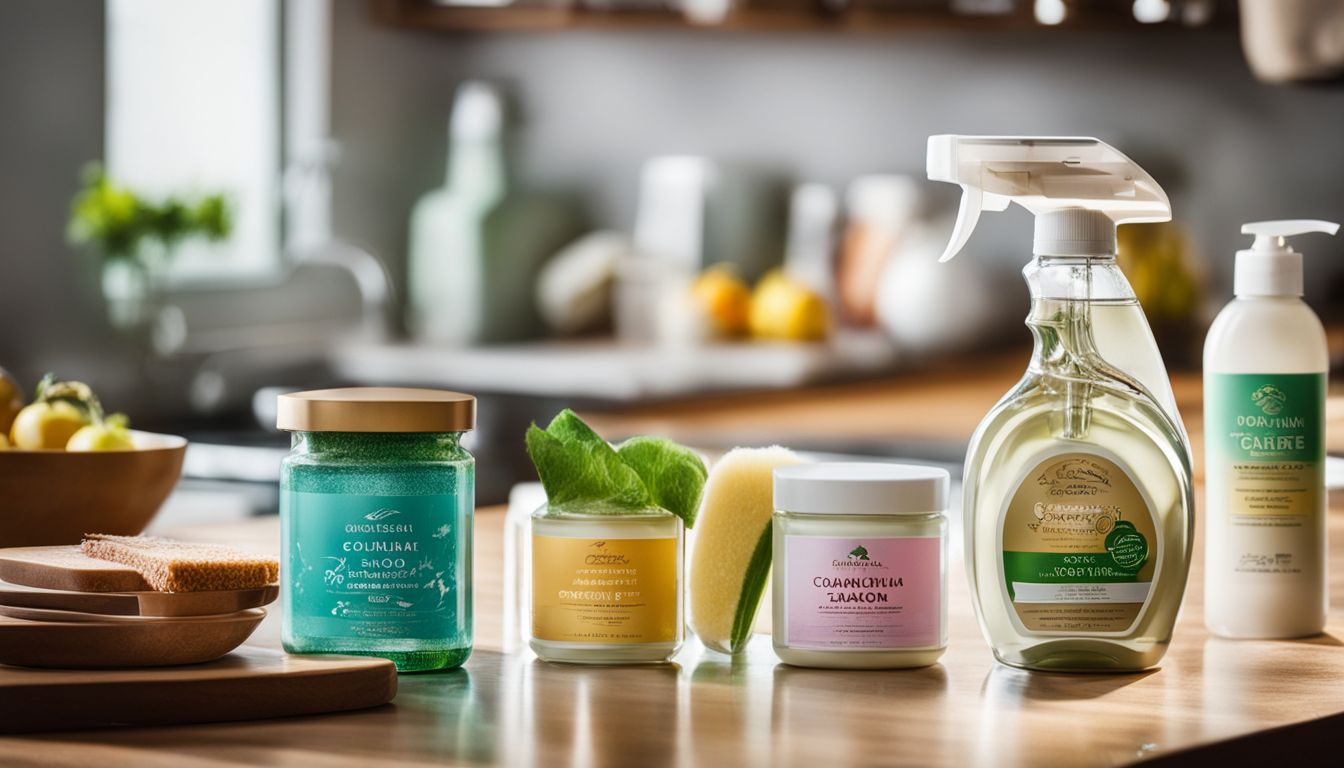
Explore commercial options and store-bought natural cleaners as alternatives to DIY solutions for a chemical-free kitchen.
Commercial options
There are also commercial options available for those who prefer not to make their own cleaners. Some popular store-bought natural cleaners include:
- Mrs. Meyer’s Clean Day: This brand offers a variety of eco-friendly cleaning products, including kitchen sprays and all-purpose cleaners.
- Seventh Generation: Known for their commitment to sustainability, Seventh Generation offers a range of non-toxic kitchen cleaning solutions.
- Method: Method is a brand that focuses on creating effective and environmentally conscious cleaning products, including kitchen cleaners.
- Ecover: Ecover offers a line of plant-based and biodegradable kitchen cleaners that are free from harsh chemicals.
- Biokleen: Biokleen produces natural and non-toxic cleaning products, including kitchen sprays and dish soaps.
Store-bought natural cleaners
You can also consider using store-bought natural cleaners for your chemical-free kitchen. Some options include:
- Eco – friendly cleaning sprays
- Non – toxic kitchen surface wipes
- All – natural dish soap
- Plant – based laundry detergent
- Organic hardwood floor cleaner
Conclusion

In conclusion, using DIY natural cleaners for a chemical-free kitchen is an easy and effective way to protect our health and the environment. With simple ingredients like vinegar, lemon, and essential oils, we can make homemade cleaning solutions that are safe and non-toxic.
By choosing these eco-friendly options, we reduce our exposure to harmful chemicals while still keeping our kitchens clean and fresh. So let’s get creative in the kitchen and embrace the power of nature for a cleaner, greener home!
FAQs
1. What are DIY natural cleaners for a chemical-free kitchen?
DIY natural cleaners for a chemical-free kitchen are homemade cleaning products made from eco-friendly and nontoxic ingredients like vinegar, water and essential oils.
2. Can I make my own all-purpose cleaner at home?
Yes, you can create your own homemade all-purpose cleaner using simple recipes of natural items that serves as safe cleaning alternatives to common chemicals used in the kitchen.
3. Are these DIY cleaners effective on different surfaces?
Natural cleaning solutions such as vinegar or water-based cleaners also work well on various types of surfaces in your kitchen when implemented correctly with nonchemical methods.
4. Is it cost-effective to make my own DIY kitchen cleaners?
Making your own homemade cleaning products is very flexible, you may save money while ensuring that you use only nontoxic household ingredients which makes for an effective green-cleaning solution.
5. How can essential oils be used in making DIY environmentally friendly cleaners?
Essential oils add scent and boost cleansing powers when mixed properly into organic kitchen cleaning alternatives for a fresh and bacteria free environment.
6. How do I store these DIY eco-friendly kitchen cleaners?
After creating your custom-made ecofriendly solutions, just pour them into empty spray bottles or jars to have them ready for quick access anytime they’re needed!

As a dedicated mother and passionate software developer, she weaves her diverse experiences into captivating stories that inspire and engage readers. Emma's love for sustainable living and environmental consciousness permeates both her personal and professional life. When she's not immersed in the world of coding and software development, Emma can be found nurturing her family and tending to her thriving organic garden. Her commitment to sustainable practices extends to every aspect of her life, from repurposing household items to embracing eco-friendly technologies.




